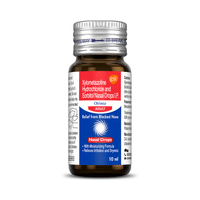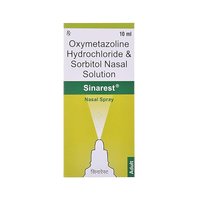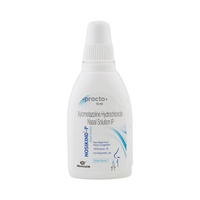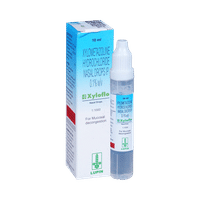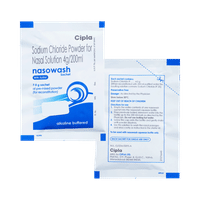Biosulin 30/70 40IU/ml Injection
Rs.151for 1 vial(s) (10 ml Injection each)
food interaction for Biosulin
alcohol interaction for Biosulin
pregnancy interaction for Biosulin
lactation interaction for Biosulin
food
alcohol
pregnancy
lactation
No interaction found/established
It is unsafe to consume alcohol with Biosulin 30/70 40IU/ml Injection.
UNSAFE
Biosulin 30/70 40IU/ml Injection is generally considered safe to use during pregnancy. Animal studies have shown low or no adverse effects to the developing baby; however, there are limited human studies.
SAFE IF PRESCRIBED
Biosulin 30/70 40IU/ml Injection is safe to use during breastfeeding. Human studies suggest that the drug does not pass into the breastmilk in a significant amount and is not harmful to the baby.
SAFE IF PRESCRIBED
SALT INFORMATION FOR Biosulin
Insulin Isophane(70%)
Uses
Insulin Isophane is used in the treatment of diabetes mellitus (Type 1 & Type 2).
How it works
Insulin Isophane is an intermediate-acting insulin, that starts working in 1-2 hours after injection. It works similar to the insulin that is produced by the body. Insulin facilitates reuptake of sugar in muscle and fat cells and also suppresses the production of sugar in the liver. This helps to lower the blood sugar levels in diabetes mellitus.
Common side effects
Hypoglycemia (low blood glucose level), Edema (swelling), Lipodystrophy (skin thickening or pits at the injection site), Diabetic retinopathy, Injection site reactions (pain, swelling, redness), Urticaria, Rash, Peripheral neuropathy (tingling and numbness of feet and hand), Refraction disorders, Anaphylactic reaction
Human insulin(30%)
Uses
Human insulin is used in the treatment of diabetes mellitus (Type 1 & Type 2).
How it works
Human insulin is a short-acting insulin, which starts working within 30 minutes after injection. It works similar to the insulin produced by the body. Insulin facilitates reuptake of sugar in muscle and fat cells and also suppresses the production of sugar in the liver.
Common side effects
Hypoglycemia (low blood glucose level), Weight gain, Edema (swelling), Injection site reaction, Red spots or bumps, Rash, Anaphylactic reaction, Amyloidosis, Hypersensitivity, Lipoatrophy
SUBSTITUTES FOR Biosulin
8 Substitutes
8 Substitutes
Sorted By
 Rs. 196.71save 14% more per ml of Injection
Rs. 196.71save 14% more per ml of Injection- Humstard 30/70 Injection 40IU/ml(10 ml Injection in vial)Cadila Pharmaceuticals LtdRs. 17.80/ml of Injection
 Rs. 178.29pay 18% more per ml of Injection
Rs. 178.29pay 18% more per ml of Injection - Recosulin M 30 40IU/ml Injection(10 ml Injection in vial)Shreya Life Sciences Pvt LtdRs. 13.90/ml of Injection
 Rs. 143.43save 8% more per ml of Injection
Rs. 143.43save 8% more per ml of Injection  Rs. 157.60pay 1% more per ml of Injection
Rs. 157.60pay 1% more per ml of Injection Rs. 178.29pay 9% more per ml of Injection
Rs. 178.29pay 9% more per ml of Injection
Expert advice FOR Biosulin
- Hypoglycemia (low blood sugar level) is a common side effect. Hence, regular monitoring of blood sugar levels is required while taking this medicine.
- Injection below the skin of the abdomen results in faster absorption than other injection sites.
- Injection sites must be rotated to prevent hard lumps from developing at one site.
- Opened vials/cartridge are good at room temperature for up to 4 weeks, while unopened vials must be placed in the refrigerator (2°C–8°C).
Frequently asked questions FOR Biosulin
Insulin Isophane
Q. How does biphasic isophane insulin work?
Insulin isophane is a recombinant human insulin analogue (genetically modified insulin that is grown in a laboratory and similar to human insulin). It is an intermediate acting insulin preparation. Insulin isophane acts by replacing the normal production of insulin and by helping transfer sugar from the blood into other body tissues where it is utilized to generate energy. It also stops the liver from producing more sugar. Intermediate acting insulin preparations start acting within an hour or 2 of injection, and reach a period of peak activity that lasts up to 7 hours, following which the action trails off; overall duration of action ranges from 18 to 24 hours.
Q. What is Insulin Isophane? How is it made?
Insulin Isophane is a man-made version of human insulin, produced by the process of biotechnology called recombinant DNA technology. It is sold as a sterile, aqueous, clear, and colorless solution that contains insulin aspart along with other constituents like glycerin, phenol, metacresol, zinc, sodium chloride etc.
Q. Can Insulin Isophane cause hypoglycemia? How do I prevent it?
Yes. The most common side effect of Insulin Isophane is hypoglycemia. It happens more often if you miss or delay your food, drink alcohol, over-exercise or take other antidiabetic medicine along with it. So, don’t skip meals and be consistent in the timing and amount of your meals. Take some snacks as per your requirement if you over exercise. Regular monitoring of the blood sugar level is important. Always carry some glucose tablets, honey or fruit juice with you. Take all your medicines prescribed by the doctor on time and consult your doctor if you notice any fluctuations in your blood sugar levels.
Human insulin
Q. Is Human insulin safe to use in type 2 diabetes?
Yes, insulin is safe to use in type 2 diabetes if used according to your doctor's advice. Keep monitoring your blood sugar levels regularly as advised. Your dosage may need to be adjusted as per your needs. Follow the lifestyle changes as advised by your doctor. Talk to your doctor about the side effects and ways to prevent and manage them.
Q. Will I need Human insulin for the rest of my life?
If you are a type 1 diabetes patient, then yes, you have to take Human insulin for the rest of your life because your body is unable to produce sufficient insulin. Therefore, you would need Human insulin as an external source of insulin. However, if you are a type 2 diabetes patient, sometimes your doctor may ask you to stop Human insulin if you are able to manage your diabetes with proper exercise, diet and oral medicines.
Q. Can Human insulin be used with other diabetes medicine?
Yes, Human insulin can be used alone or in combination with other diabetes medicines like long-acting insulin or oral diabetes medicines, along with proper diet and exercise. Follow your doctor’s advice and treatment plan to get the maximum benefit.














